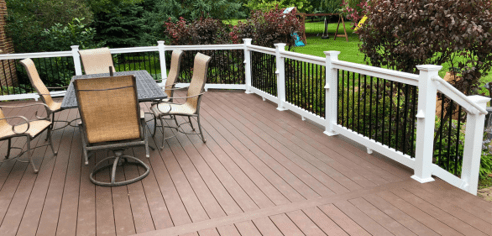Boiler installation is a significant investment for both residential and commercial properties, directly impacting energy efficiency, heating quality, and long-term operational costs. When planning a new boiler installation, understanding the various factors influencing the cost is essential to make an informed choice. Several variables, from the type of boiler to location and complexity, can affect the final installation cost. Here, we’ll explore the primary factors affecting boiler installation costs.
1. Type of Boiler
One of the most influential factors on boiler installation cost is the type of boiler selected. Boilers come in various models, including combi (combination), system, and conventional (or regular) boilers, each with unique installation requirements and price points.
Combi Boilers: These are compact and provide on-demand hot water without the need for a storage tank. While they are often easier to install in smaller homes, high-output combi boilers may be more expensive.
System Boilers: System boilers have separate hot water cylinders but no water tank. Installation costs are typically higher than for combi boilers due to additional plumbing.
Conventional Boilers: Conventional boilers, often found in older homes, use both a tank and a cylinder, which can make installation more complex and costly. These are often suited for larger homes with high hot water demand.

2. Boiler Size and Output
The boiler’s size and output directly impact installation costs. Larger properties with higher heating and hot water demands require boilers with greater output. Boilers with higher output ratings are more powerful but generally more expensive to install due to added complexity and material costs.
3. Fuel Type
The type of fuel used by the boiler—natural gas, oil, electric, or propane—affects both the installation process and overall cost.
Natural Gas: Gas boilers are the most common and generally have lower installation costs. However, if there’s no existing gas line, the cost can increase significantly.
Oil: Oil boilers are common in areas without access to natural gas. Installation costs are generally higher for oil boilers due to the need for oil storage tanks and specific ventilation requirements.
Electric: Electric boilers tend to have lower upfront installation costs, though they may be more expensive to operate in the long run, depending on electricity prices.
Propane: Propane boilers are similar to oil but require storage tanks. Installation costs may include additional fees for safety measures related to tank placement and connections.

4. Location of Installation
The location of the plumbing services in Burnaby like new boiler installation within the property can impact labor and materials, thus it’s among important factors affecting boiler installation costs. For example, installing a boiler in a hard-to-reach area, such as a basement or attic, typically incurs additional labor costs.
Relocating a boiler to a different part of the property also raises installation costs. In such cases, extra materials like piping, flues, and wiring are needed, along with additional labor.
5. Flue and Ventilation Requirements
Modern boilers need adequate flue and ventilation systems to ensure safe operation and efficiency. If the new boiler requires a different type of flue than the previous model, this will add to the installation costs. Condensing boilers, for example, require a specific type of flue system that may not be compatible with older systems. Installing a new flue through a wall or roof, or making structural adjustments to accommodate it, can raise the installation cost. In some cases, especially for oil or propane boilers, additional ventilation work may also be required to ensure safe operation.
6. Conversion Requirements
For some properties, plumbing services in Burnaby and boiler installation costs increase when switching from one type of system to another. For example:
Converting from a conventional to a combi boiler: This involves removing the existing hot water tank and extra piping, which increases labor costs.
Fuel Conversion: Converting from an oil boiler to a gas boiler requires additional work, including removing the oil tank, rerouting pipes, and potentially adding a gas line.
These conversions often involve more labor, materials, and time, impacting the overall installation budget.

7. Energy Efficiency Features
High-efficiency boilers, while often more expensive upfront, can save money in the long run by lowering energy bills. Installing a high-efficiency condensing boiler, for example, may cost more initially but offers better energy savings. Energy-efficient features, including smart thermostats and advanced controls, can also raise installation costs but are generally worth the investment in terms of energy savings and enhanced control.
8. Labor Costs and Installer Expertise
Labor costs for boiler installation vary based on the experience and qualifications of the installer, location, and the complexity of the installation. Licensed professionals with specialized skills in handling complex systems often charge higher rates, but they can ensure a safe, compliant, and efficient installation.
Varying labor costs in different regions
In some regions, labor costs are naturally higher due to local demand, cost of living, and market rates for skilled work. In rural or remote areas, travel fees may also apply, adding to the overall installation costs.
9. Permits and Regulations
Certain boiler installations and plumbing services in Burnaby may require permits or inspections, especially if structural changes or fuel conversions are involved. In some areas, local regulations require permits for new boiler installations or changes to existing systems. These permits, often necessary to ensure compliance with safety standards, add to the installation cost.
10. Additional Equipment or Modifications
Sometimes, a boiler installation requires additional equipment or upgrades that can increase costs. Common examples include:
Water Treatment Systems: These help prevent scale build-up, especially important for boiler longevity in areas with hard water.
Expansion Vessels and Pressure-Relief Valves: These may be needed to manage water pressure in high-demand systems.
Insulation: Insulating pipes and tanks can help increase energy efficiency but adds to the installation cost.
In certain cases, old boilers require modifications to the heating system, such as pipe resizing or radiator upgrades, which can further impact costs.
Conclusion
There are numerous factors affecting boiler installation costs, from the type and size of the boiler to location-specific requirements and additional equipment. Understanding these factors can help homeowners and property managers plan their budget more effectively and make informed choices to maximize efficiency and long-term savings. When considering a boiler installation, consult with licensed professionals to ensure a safe, efficient, and cost-effective installation tailored to your specific requirements.















